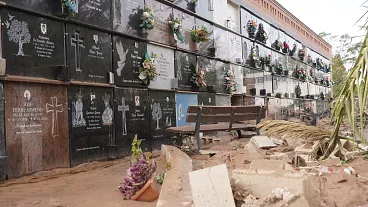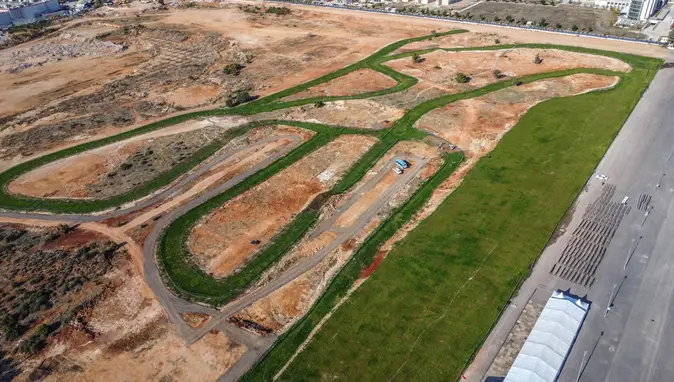Spain is grappling with the aftermath of one of the worst flood disasters in recent years, prompting the establishment of a temporary morgue to handle the increasing number of casualties. The severe flooding, which swept through several regions, has resulted in significant loss of life and widespread destruction, leaving communities in shock and mourning.
Authorities reported that the floods, triggered by heavy rainfall and severe weather conditions, have led to at least 40 confirmed fatalities, with dozens more missing. The temporary morgue, set up in a facility near the affected areas, is equipped to provide dignified handling of the deceased and support for the families of victims during this tragic time.
The devastating floods have wreaked havoc on infrastructure, damaging homes, roads, and public services. Emergency services have been working tirelessly to rescue individuals trapped in flooded areas and to provide aid to those who have lost their homes. In addition to the human toll, the economic impact of the disaster is expected to be profound, with estimates of damages running into billions of euros.
Local government officials have declared a state of emergency in the worst-hit regions, allowing for the mobilization of additional resources and assistance. “This is a critical moment for our communities, and we are doing everything we can to support those affected by this disaster,” said a regional official during a press conference. The government is coordinating with national and international agencies to ensure that immediate relief efforts are implemented effectively.
In the wake of the floods, residents are coming together to help each other in any way they can. Community centers are being used as shelters for those displaced by the disaster, and volunteers are providing food, clothing, and emotional support to families in need. “We have lost so much, but we are here for one another,” said a local resident, reflecting the resilience of the affected communities.
As recovery efforts continue, experts warn that climate change is contributing to the increasing frequency and intensity of such weather events. Researchers emphasize the need for comprehensive disaster preparedness and climate adaptation strategies to mitigate the impact of future flooding. “We must learn from this tragedy and work towards better infrastructure and response systems,” they stated.
In conclusion, the recent floods in Spain have led to a tragic loss of life and widespread destruction, necessitating the establishment of a temporary morgue to accommodate the victims. As the nation comes to grips with the aftermath of this disaster, the focus now shifts to recovery efforts and the long-term strategies needed to prevent similar events in the future. The resilience and solidarity of the Spanish people during this challenging time are shining examples of hope amid the tragedy.




